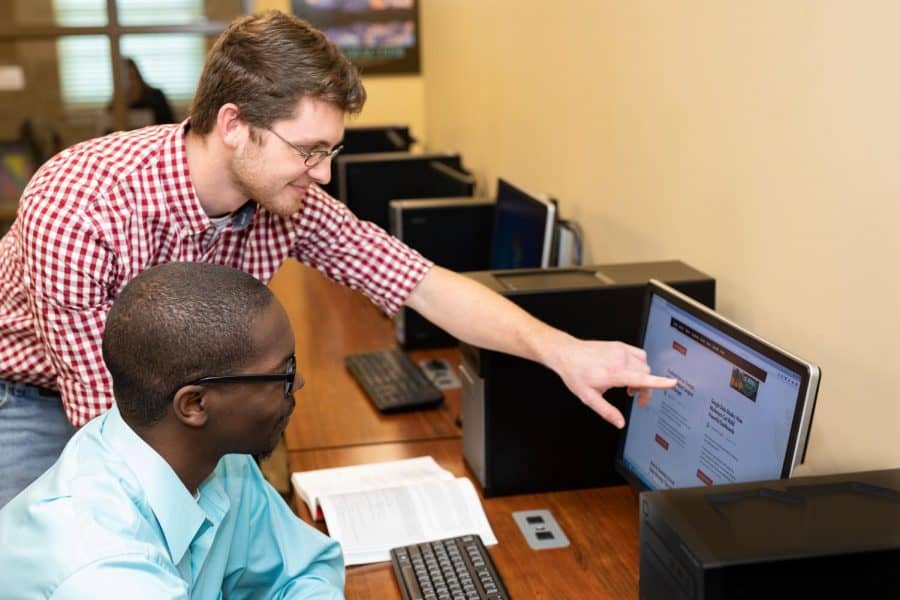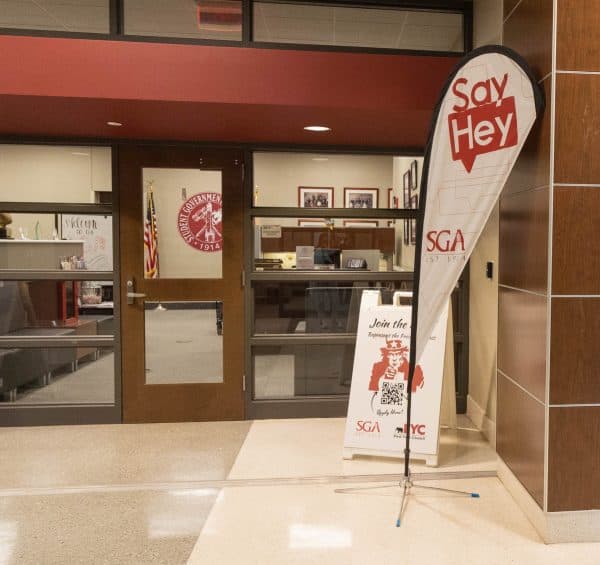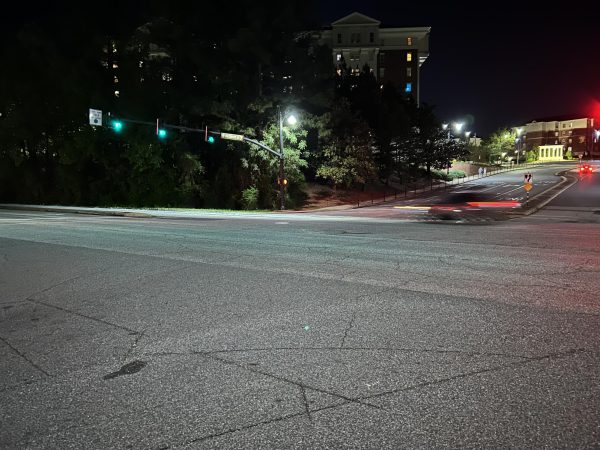REACH director receives Judy Bonner Prize
February 25, 2019
Sam Whitley is one of several students who has been impacted by the work of Shannon Hubbard, the director of Alabama REACH.
Whitley, a junior majoring in criminal justice, grew up in foster care. She had to persevere through a lack of encouragement before she was part of REACH, an organization that provides support for foster youth, orphans, emancipated minors, wards of the state and homeless youth.
“Growing up, a lot of the things were, ‘Oh, you’re never going to get into college,’ and when you do get into college, people aren’t going to understand,” Whitley said.
Whitley often felt discouraged and misunderstood during her time in high school.
“Then you come here and you get involved with something like REACH and you get to meet people who’ve been through those kinds of hardships and struggles,” Whitley said. “You realize, one, you’re not the only person, and two, if they can do it then I can, too.”
REACH was established in 2012, and Hubbard has acted as director since 2015. The program currently has 32 students.
Hubbard was awarded the Judy Bonner Presidential Medallion Prize on Feb. 21. Named after the former president of the University who served from 2012-2015, the award recognizes a UA community member who made a positive impact on the undergraduate experience by going above and beyond conventional expectations to improve the community’s culture.
The award comes with a monetary gift, and Hubbard said she plans to use the gift to help fund REACH. One of her ideas is to build housing for students in the program.
“REACH is more like a community-building program,” Hubbard said. “We’re here to give students a sense of family on campus when they don’t have one like other students do.”
Hubbard said since December, REACH has gained $20,000 in donations.
One of Hubbard’s goals for REACH is to de-stigmatize the anxieties behind each student’s personal situation.
“It’s like a normal setting for any college student to come hang out and talk,” Hubbard said.
Students attend classes, campus events and regular REACH meetings. After talking about their experiences with Hubbard, there is no need for students in REACH to talk about their background with others.
“Once they come to REACH, they’re just students – period,” Hubbard said.
Whitley said she was uncomfortable in certain social situations before joining REACH. As a student worker for REACH, Whitley actively goes on speaking engagements in schools around Tuscaloosa.
“[Hubbard] has gotten me to call people and talk to people and get involved, especially when I do speaking engagements with younger kids,” Whitley said. “Because younger kids will ask you the most off-the-wall questions, and you just have to have a response.”
For Hubbard, being the director of Alabama REACH is not a job; it’s a passion.
“I went and talked to a group of younger kids who are in a situation where they think college is impossible,” Whitley said. “[Hubbard] does this program, and it’s for kids who have been through some really rough situations that some people might not even take into consideration.”
Amber Capell, director of external engagement in the Division of Student Life, is a member of the REACH advisory board. Capell worked with Hubbard when she first started as REACH director. At that time, Capell worked in the undergraduate scholarship office.
“I was always trying to make sure that the students who were in the REACH program and who were eligible to be in the REACH program when they were in high school were aware of scholarship opportunities,” Capell said. “I worked with Shannon so she could help get that information out.”
Capell was brought onto the advisory board because of her experience in the undergraduate scholarship office.
“I think it’s because I do have a passion and a drive to make sure this particular population knows about the resources they have on campus,” Capell said.
In Capell’s opinion, there is no other person that deserved the Bonner Award more than Hubbard.
“Her impact on these students goes well beyond UA’s campus,” Capell said. “They rely on her, and she is a rock for a lot of them. She puts in so much time and effort, not only in her office and at home. They are her family.”
Whitley said she feels like REACH is different than other organizations on campus.
“I don’t want to say that we’re necessarily a minority because we’re all so different, but in some ways we kind of are like a minority,” Whitley said.
Being a part of REACH has helped Whitley form roots at the University. Hubbard encouraged Whitley to get involved on campus and break out of her comfort zone.
“[Hubbard] has definitely pushed me to do a lot more things that I definitely would not do,” Whitley said. “I’ve told [Hubbard] this a couple times, but had it not been for REACH, I would not have gotten involved with anything on campus.”
Hubbard said REACH has influenced her. The REACH students are the most unique group of students she’s ever worked with, and she keeps in touch with every single one of her students even after they graduate.
“They are the most amazing students ever,” Hubbard said. “To see the tenacity that they have after all they’ve been through, and to see them fighting to be someone on campus, to become a UA graduate and to actually succeed and move on into their professional life, that is extremely gratifying.”











